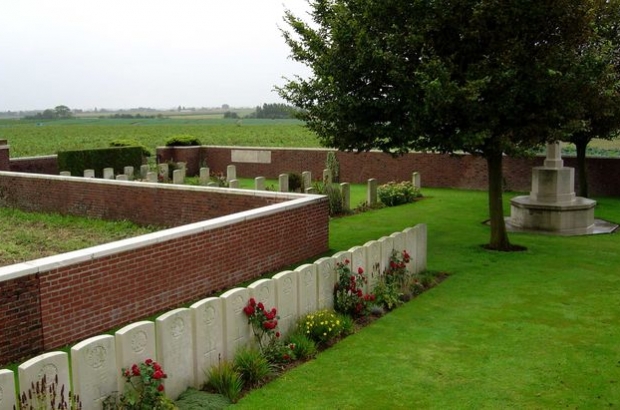- Daily & Weekly newsletters
- Buy & download The Bulletin
- Comment on our articles
First World War tourism ignores Mesen
Sandy Evrard, the mayor of the small village of Mesen in southern West Flanders on the border with France, expressed his anger yesterday at colleagues from other First World War cities in the province.
The statements were brought on by the launch of a special war tour bus that will take in some of the most important First World War sites but will not stop in Mesen (or Messines, as it is known in English). “The people of Ypres seem to think the whole war took place over there,” Evrard said.
The bus will travel from Nieuwpoort on the coast, to Diksmuide and Ypres and back several times a day to allow tourists to visit all the major First World War sites. Evrard claimed that the bus tour was his idea originally: He had hoped for a route between Lille and Ypres, with some stops to the south of Ypres, including Mesen. “They stole my idea and left Mesen out,” he said. The Open VLD mayor suggested that the plan was a conspiracy of CD&V mayors in the other cities.
Mesen (pictured) is best known for the 1917 Battle of Messines Ridge, when English and Irish regiments hoped to retake the tiny city, strategically located on a hill, from the Germans. Some of the battle’s shell explosions are believed to have been felt as far away as London. Mesen still has a Pool of Peace, a crater made by such an explosion, later filled with water. Historians note, however, that the Battle of Messines Ridge mostly took place in Wijtschate, which is part of neighbouring Heuvelland.
Nearby Ploegsteert in Wallonia is also known for the 1914 Christmas truces, during which British and German soldiers fraternised and played football. Michel Platini, president of the Union of European Football Associations, will visit the area, including Mesen, later this year, but first he will deliver a speech – in Ypres. “Are we going to steal each other’s remembrances?” Evrard asked.
Jan Durnez, the CD&V mayor of Ypres, responded to Evrard: “Where the First World War is concerned, Ypres comes to mind first. But let’s not start a war on the remembrance. There is no point in that.”



















